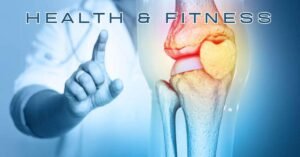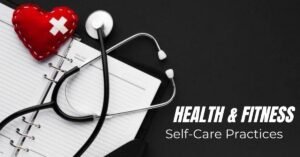Expertise’s cognitive traits include a highly structured and distinct body of knowledge, honed technical talents, and perceptual capacities that enable experts to perceive the world very differently from non-experts. According to experts, these are a few of the cognitive mediators of high-level performance. Experts can effectively coordinate activities in team situations and are knowledgeable about cultural norms and disciplinary discourse. Medical expertise is developed by lengthy domain-related practice and training, usually lasting more than 10 years, as covered in other entries in this volume (Ericsson and Smith 1991).
It is challenging to describe Medical expertise in terms of performance; even yet, extraordinary performance is one of the traits that set experts apart.

Medical expertise is sometimes defined as other cohorts in cognitive research. For instance, authors with five years of experience are more knowledgeable than those who are just starting in the field. More often than not, socially accepted standards are used to define Medical expertise. Grand Master chess players, for instance, receive this designation after reaching a particular Elo rating based on their performance in tournaments. The medical expert usually has years of experience and is a board-certified medical specialist in subcategories like cardiology and endocrinology. Medical practice is highly specialized, and medical expertise is limited, just like other professional fields.
As specialists operate in fields farther and farther from their area of expertise, research has shown performance gradations. A typical cardiologist, for instance, is a true expert in cardiology, possesses significant skills in respiratory medicine, and would find treating patients with dermatological conditions fairly complex. Due to need, the explosion of medical knowledge in recent years has resulted in increased specialization and more limited areas of speciality.
Since roughly the middle of the 1970s, researchers have been examining medical skills. In addition to appropriating techniques and theories from the study of memory, language comprehension, visual perception, and human-computer interaction, the approach has heavily referenced cognitive methods of protocol analysis. Studies of complex cognition can be conducted in the knowledge-rich yet unstructured field of medicine. We can map the evolution of knowledge from the inexperienced medical student to the seasoned board-certified medical practitioner in this highly stratified field. It is also a highly specialized field with a variety of various bodies of knowledge.
Research on medical cognition can be divided into two main areas: studies that describe the composition and application of fundamental scientific information and studies that look into the clinical reasoning process. The research covers everything from real-time decision-making in high-velocity medical contexts to experimental tasks typical of medical practice. The definition and evolution of medical knowledge are the main topics of this essay. The chapter covers explicitly studies, theories, and methodologies related to the study of clinical reasoning, decision-making, and understanding of biomedical concepts.
Knowledge of Medicine
In the eighteenth and nineteenth centuries, doctors asserted their power due to their gentlemanly standing more than medical advancements. Attendance at prestigious universities and familiarity with classical education served as the foundation for this authority. The practice of medicine was a middle-class male occupation. The working class, women, and minority racial or religious work groups were mainly left out.
Because medicine claimed to be associated with the rapidly increasing reputation of science, it exerted authority more and more throughout the nineteenth and early twentieth centuries. However, this type of medicine was unique; it was founded on individual biology and germ theory, which triumphed over public health medicine and other health-related political movements in favour of concentrating on the social causes of sickness, such as poverty and substandard living conditions.
Foucault highlighted how power and knowledge are inextricably linked. Credentialism and control over knowledge production are undoubtedly two tactics employed by medicine to acquire and thereafter preserve control over healthcare. Although basic scientists rather than doctors conduct a large portion of this research, the profession controls and manages the production of information in medical schools and health science complexes. Direct access to patients and prescription medications, two essential components of the research project, are monopolized by doctors.
The legitimacy of medical claims to knowledge has been called into question by recent events. Both medical professionals and non-professionals question the effectiveness of some medical procedures.
When public resources are insufficient, NGOs can supply the extra resources that are required. Even in nations with abundant resources, calamities can outstrip governments’ capacity to respond appropriately. An excellent example is a medical surge. In many regions, the capacity of a healthcare system to offer trauma care can be strained by even a relatively minor incident, such as a multi-car crash. The necessity for outside medical aid becomes evident when one examines a significant occurrence, like the 2010 Haiti Earthquake, where thousands of people were injured, the healthcare infrastructure was disrupted, and people were unable to access their medical providers. The need for skilled experts can be so great that even with in-country mutual help and national government funding, NGOs with medical knowledge may not be able to meet the demand.
To what extent is patient autonomy respected?
Medical expertise practice is now unquestionably characterized by the moral and legal duty to protect patient autonomy through informed consent. This involves some clear-cut obligations that result from people’s inexperience with medicine. First and foremost, healthcare professionals should give patients sufficient information about their health, the advantages and disadvantages of suggested tests and treatments, and the anticipated impacts of their decisions on life expectancy and quality of life. In other words, practitioners must give patients pertinent medical information.
Second, professionals ought to convert medical jargon into terms that patients can comprehend. The patient’s prior knowledge and the complexity of the relevant medical data will determine how much of a duty this is. For patients who are familiar with the Medical expertise used for the current problems, practitioners will have less translation to undertake. Third, professionals should eliminate well-known and preventable barriers to patients’ utilization of medical information. For instance, as previously said, probabilities are more difficult for both expert and lay decision-makers to use than frequency formats [15]. Therefore, when providing patients with information, practitioners should refrain from using probabilities. Patients should be informed that there is a one-in-ten possibility that there is a 10% risk.
Communicating information to patients is at the heart of these three practitioner responsibilities. In order for patients to make an informed decision, the practitioner gives them the information. Nevertheless, the psychological science findings covered above suggest that even when patients are well-informed, their judgment may be skewed. What additional responsibilities might practitioners have to guarantee sound patient judgment? This subject is addressed in the rest of this section. Is it sufficient for professionals to give patients the facts and let them make the decision, or do they also have an obligation to guarantee that patients make an educated and objective decision?
For over 30 years, medical cognition has been the focus of official research. Studies of cognitive functions like perception, understanding, reasoning, decision-making, and problem-solving in the context of medical practice or tasks that are indicative of it are referred to as medical cognition. Medical professionals, such as doctors, biomedical scientists, and medical students, are used in these investigations. Without examining medical professionals or actual tasks, cognitive psychologists have frequently employed artificial medical stimuli (arbitrary disease and symptom pairings) to investigate classification and prediction in general (e.g., Medin & Edelson, 1988; Gluck & Bower, 1988). These efforts are not medical cognition studies, despite the fact that this work has had a significant impact.
A medical expertise report is a collection of work overseen by one or more medical professionals that aims to assess the harm to a patient’s health or the physical and psychological integrity of a victim, as well as the causes and consequences that have been gathered and developed.
In addition, it means assessing the accident victim’s limitations from a personal, economic (work or professional), domestic, and other standpoints, whether they are temporary or permanent, i.e., definitive; however, the aesthetic prejudice, the enjoyment prejudice, the extra-professional prejudice, the quantum doloris, the premium voluptatis, the need for third-party assistance, the missed opportunity, the treatment, the materials, the planning arrangements.
Since the calculations of the compensation will be based on the medico-legal complete evaluation in the medical expertise report, it is a decisive step in the repair of the prejudices incurred by the victim. As a result, the victim will establish their note of prejudice, and the insurance company’s management or attorney will then begin negotiating the cash settlement.
Which medical specialty?
Medical expertise can be divided into two categories: judicial and friendly. Despite using distinct approaches, they both aim to achieve the same thing.
Each party’s medical advisors, referred to as co-experts, engage in direct and ongoing communication in an effort to reach a mutually agreeable solution. On the other hand, they request a third-party arbitrator to call them in, a medical specialist they had decided upon before beginning their task.
In judicial medical expertise, the Tribunal’s designated medical expert is the one who hears and considers the parties’ respective medical advisers’ points of view before reaching a decision.






